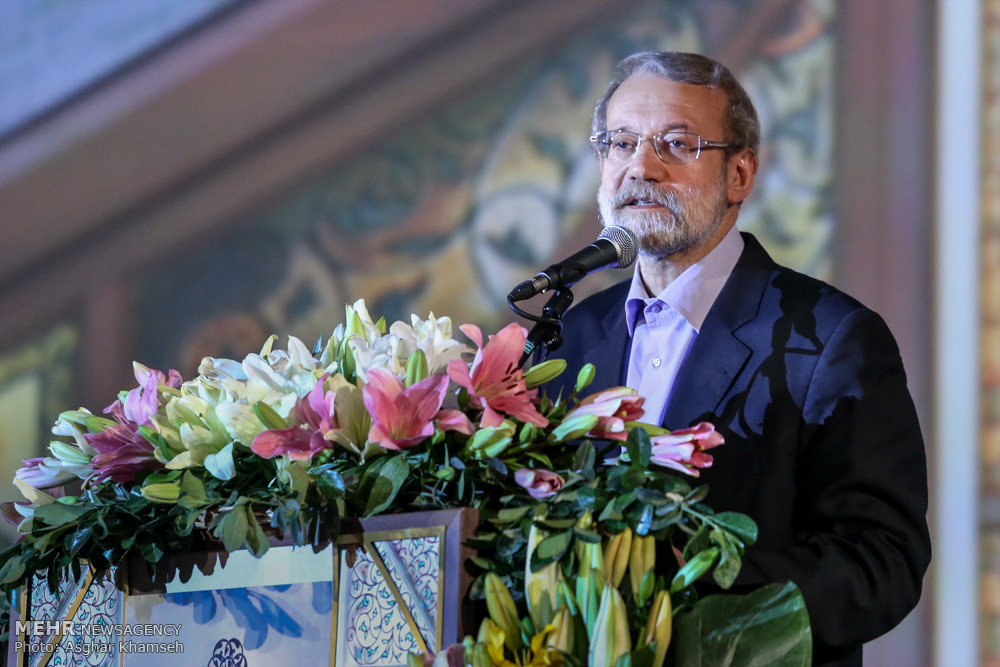Larijani rules out campaign promises to triple cash handouts

TEHRAN - The Iranian parliament speaker disagreed strongly on Monday with campaign pledges to triple cash handouts to Iranians, saying there are not enough financial resources to do so.
“In the current economic situation of the country, the government can't afford doubling or tripling cash handouts,” Ali Larijani was quoted as saying in Qom, the city he represents in the parliament.
“Considering the revenues and expenditures of the government, increasing the amount of subsidies is impossible because the government has no money for it,” the principlist parliamentarian explained.
Currently, annual cash handouts amount to nearly $40 billion, according to him, as much as the country’s oil revenues in the Persian calendar year 1395 (which ended on March 20).
In making the comments, Larijani was hinting at presidential hopefuls Mohammad Bagher Ghalibaf and Ebrahim Raisi, both principlist, who have pledged to triple cash handouts, citing widening gap between the rich and poor.
The Ahmadinejad administration introduced the cash handout when he introduced the subsidy reform plan in December 2010 in order to achieve a better distribution of national wealth.
It was forecast that cutting energy subsidies could eat into demand and lower the need for imports. Higher prices could also make smuggling gasoline less profitable and in the longer term improve fuel efficiency.
But none of the goals were materialized.
Ever since, cash handouts has been hotly debated, turning into one of the most pressing socioeconomic initiatives in recent years.
A litany of economic problems caused by an arbitrary implementation of the "economic surgery" was bequeathed to the Rouhani administration who took office in 2013.
Rouhani has said Ahmadinejad squandered vast oil revenues on cash handouts and the Mehr housing project during his two terms in office from 2005 and racked up immense government debt.
The fate of cash subsidy was a running theme of the first presidential debates aired live on national TV.
The comments have sparked strong opposition from fiscal and economic officials.
Central bank governor Valiollah Seif said he was “surprised” to learn that one of the presidential hopefuls had vowed to triple the current cash subsidy.
It is conducive to higher inflation and does not match with the realities of the country's current economic situation, the central banker stated.
Previously, Economy Minister Ali Tayebnia had called the month-end cash handouts the "grand misery".
Sadegh Zibakalam, a political science professor at the University of Tehran, vehemently criticized the subsidy comments, reducing them to populist slogans and inviting the candidates to learn more about the "multiplication table."
AK/PA
Highlight:
Larijani says it is not possible to increase cash handouts as the government doesn't have enough money to do so.
